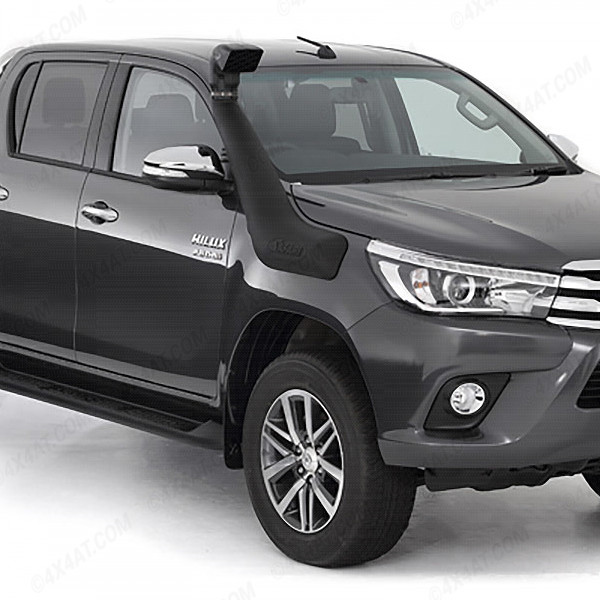Buying a used car can be a smart financial decision. It allows you to acquire a reliable vehicle at a significant cost savings compared to a new car. However, financing a used car requires careful planning and strategic decision-making to ensure you get the best possible deal. This blog post equips you with the knowledge and tools to navigate the world of used car financing, helping you secure a loan that fits your budget and sets you up for financial success.
Understanding Your Options: Loan Types for Used Cars
There are several loan options available for financing a used car. Understanding the key differences between them is crucial for choosing the best option for your financial situation:
-
Dealer Financing: Many car dealerships, including Sydney’s used car dealers, offer on-site financing for used cars. This can be a convenient option, but it’s essential to compare interest rates and terms with other lenders before committing.
-
Bank Loans: Banks often offer competitive interest rates on used car loans. They may also have longer loan terms, allowing you to spread out your payments over a longer period.
-
Credit Union Loans: Credit unions can be a great option for used car financing, particularly if you’re a member. They may offer lower interest rates and more flexible loan terms than banks.
-
Online Lenders: Online lenders can be a good option for borrowers with less-than-perfect credit. However, it’s important to compare rates and terms carefully, as online lenders can have higher interest rates than traditional banks or credit unions. Learn more
Here’s a table summarizing the key types of used car loans:
Building Your Creditworthiness: The Power of a Good Credit Score
Your credit score significantly impacts the interest rate you qualify for on a used car loan. A higher credit score translates to a lower interest rate, saving you money in the long run. Here are some tips to improve your credit score before applying for a loan:
-
Pay your bills on time: This is the single most important factor in determining your credit score. Consistent on-time payments demonstrate your financial responsibility.
-
Reduce your credit card debt: High credit card utilization (the amount of credit you’re using compared to your credit limit) can negatively impact your score. Aim to keep your credit utilization below 30%.
-
Check your credit report for errors: Review your credit report regularly and dispute any errors you find.
Also visit: https://cashforcarsnsw.com.au/car-removal-sydney/
Negotiation is Key: Securing the Best Loan Deal
Once you’ve chosen a lender, don’t be afraid to negotiate the interest rate and loan terms. Here are some tips for successful negotiation:
-
Get pre-approved: Obtaining pre-approval from a lender gives you bargaining power and shows the seller you’re a serious buyer.
-
Shop around and compare offers: Don’t settle for the first offer you receive. Get quotes from multiple lenders to ensure you’re getting the best possible rate.
-
Highlight your strengths: If you have a good credit score or a steady income, emphasize these factors during negotiations.
The Bottom Line: Financing a Used Car Smartly
By understanding your loan options, improving your creditworthiness, and negotiating effectively, you can secure a used car loan that fits your budget and sets you up for financial success. Remember, financing a car is a long-term commitment. Taking the time to make informed decisions will ensure you drive away with a car you love and a loan you can comfortably manage.
Frequently Asked Questions (FAQs)
What is a good down payment for a used car?
A larger down payment will generally result in a lower loan amount and potentially a lower interest rate. While the ideal down payment amount can vary depending on your financial situation, a good starting point is at least 10% of the car’s purchase price.
How long should my used car loan term be?
The ideal loan term depends on your budget and financial goals. A shorter loan term will mean higher monthly payments but allows you to pay off the loan and own the car sooner. A longer loan term will have lower monthly payments but results in paying more interest overall.
What are some additional costs to consider when financing a used car?
Beyond the loan itself, there are other costs associated with financing a used car:
-
Sales Tax: You will likely need to pay sales tax on the purchase price of the car. The exact sales tax rate can vary depending on your location.
-
Registration and Title Fees: There will be fees associated with registering the car in your name and obtaining a title.
-
Auto Insurance: You are required to have car insurance to legally operate your vehicle. The cost of car insurance can vary depending on your driving record, the car you purchase, and your location.
-
Gap Insurance: This optional insurance covers the difference between the car’s actual cash value and the amount owed on the loan if the car is totaled in an accident.
Should I consider refinancing my used car loan?
Refinancing your used car loan can be a good option in some situations. For example, if your credit score has improved significantly since you took out the original loan, you might be able to qualify for a lower interest rate. However, refinancing typically involves fees, so it’s important to compare the potential savings with the associated costs before making a decision.
What are some resources that can help me compare used car loan options?
Several online resources can help you compare used car loan options from different lenders. These resources allow you to input your desired loan amount and credit score to see estimated interest rates from various lenders. It’s important to note that these are just estimates, and the actual rate you qualify for may vary.
By carefully considering all these factors, you can make informed decisions throughout the used car financing process. Remember, with a little planning and smart negotiation, you can secure a used car loan that allows you to enjoy the freedom and convenience of car ownership without breaking the bank.




